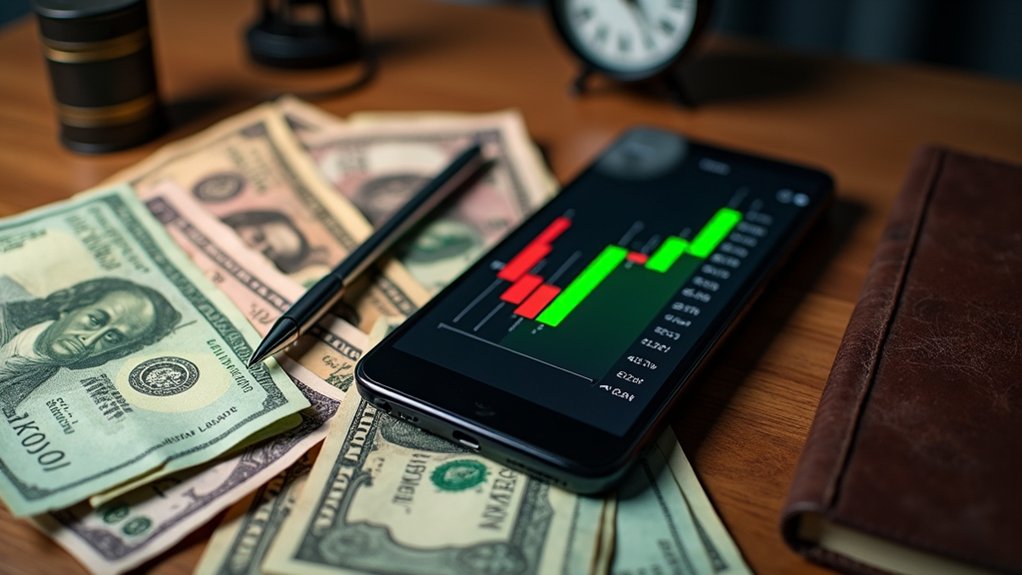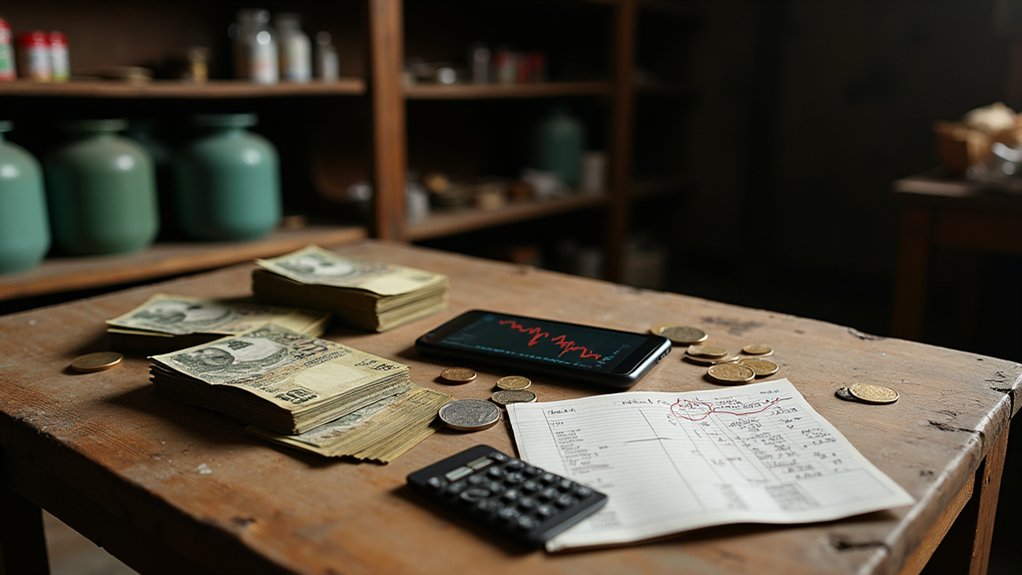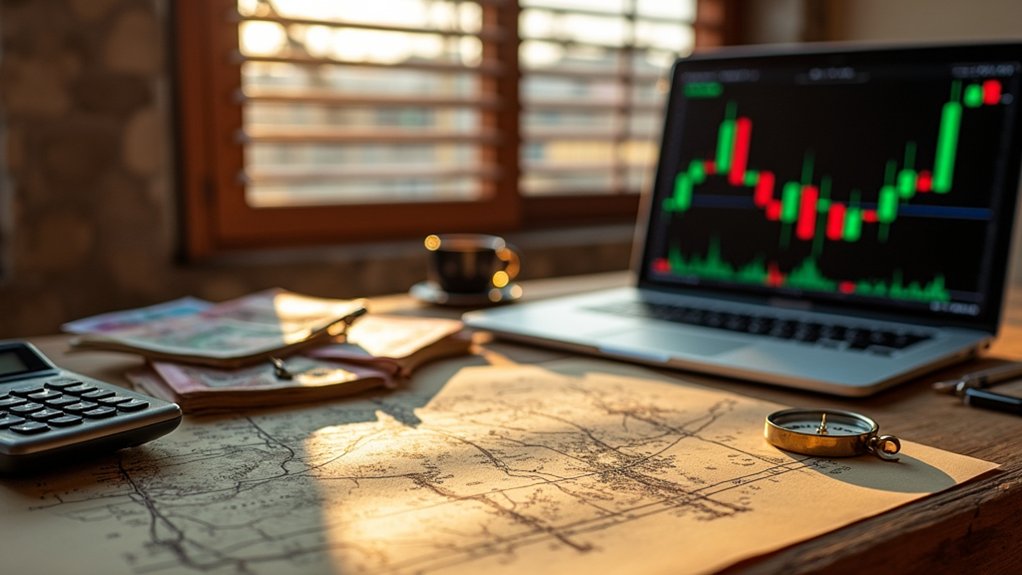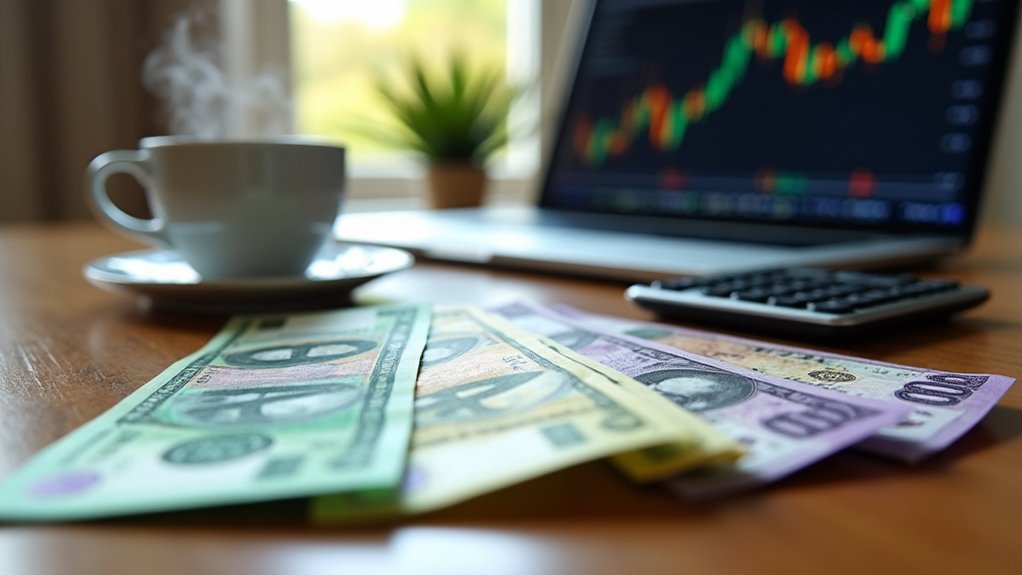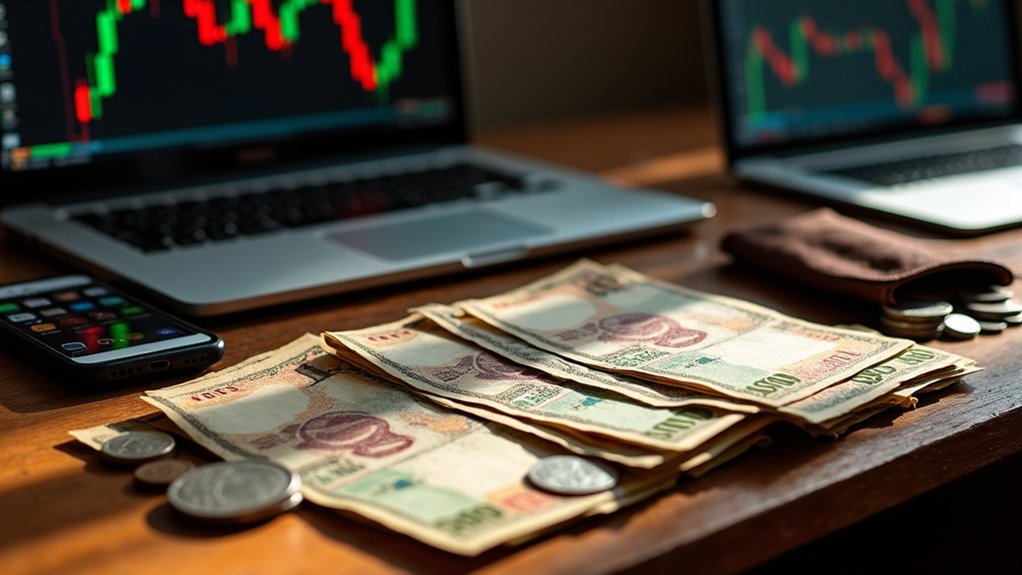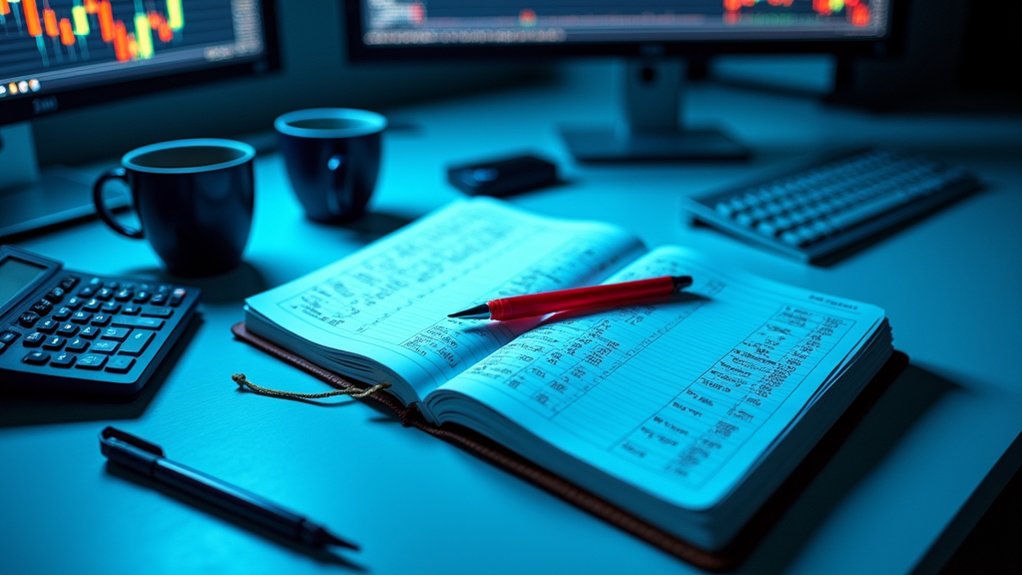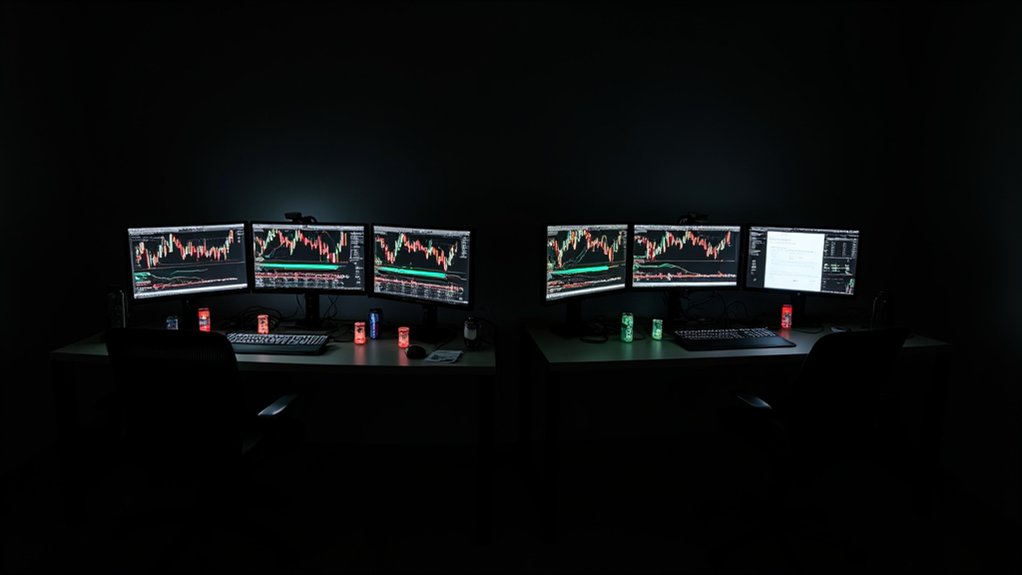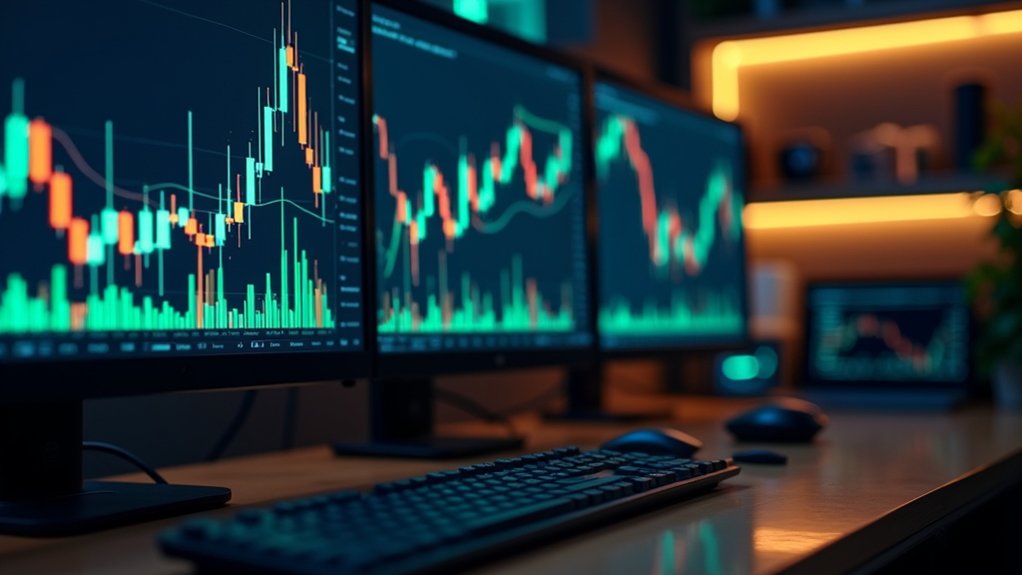Forex trading in Nigeria is legal for individuals, operates around the clock Sunday through Friday, and runs mostly through offshore brokers since the country lacks a dedicated retail-forex regulator. The Central Bank intervenes occasionally, the naira floats against the dollar, and traders use the same platforms—MT4, MT5—as everyone else. London-New York overlap offers the tightest spreads. The catch? Scams have drained over ₦500 billion in a decade, fueled by absurd leverage, fake promises, and regulatory gaps that let unregistered platforms flourish. What works, what doesn't, and how to navigate the chaos—explained below.
Quick Facts That Matter
- Nigeria's forex market is Africa's second-largest, operating 24/5 with trading primarily in USD/NGN pairs through global broker platforms like MT4/MT5.
- Retail forex trading is legal, but Nigeria lacks a dedicated regulator; most brokers operate offshore under FCA, CySEC, or ASIC licenses.
- Best trading occurs during London-New York overlap (12–4 PM WAT) when liquidity peaks and spreads tighten on major currency pairs.
- Scams proliferate through unrealistic return promises, withdrawal blocks, and extreme leverage offers, exploiting regulatory gaps and financial illiteracy.
- Profits face standard income taxation; brokers require CBN compliance reporting, but many operate without proper SEC licensing or local oversight.
Overview: Forex Trading in Nigeria

Nigeria's forex market doesn't mess around. It's the second-largest in Africa, trailing only South Africa.
Nigeria's forex market ranks second in Africa—only South Africa is bigger in size and trading volume.
The market runs on import demand—massive, relentless, constantly hungry for foreign currency. Individual traders, institutions, and licensed brokers all jostle for position in a 24-hour cycle that opens Sunday 11:00 PM WAT and shuts down Friday 10:00 PM WAT.
The naira floated in June 2016 after being pegged to the dollar. The Central Bank of Nigeria thought a float would juice the economy and pad reserves.
Instead? Persistent devaluation, inflation, oil price whiplash, and structural problems that won't quit. Oil prices remain a critical driver since Nigeria's economy leans heavily on petroleum exports.
Regulators—CBN and SEC—demand licenses before brokers can operate. The CBN shapes the forex market through monetary strategies and direct interventions that influence currency exchange rates. Mobile apps and blockchain are creeping in.
The old multiple exchange rate mess is finally limping toward a unified system.
Is Forex Trading Legal in Nigeria?

For individual traders risking their own money, forex trading in Nigeria is completely legal. No law bans you from opening an account with an offshore broker and trading currencies. Personal capital, personal risk, personal business.
But—and this matters—turning pro is a different game. Running “forex investment” schemes without a license? Illegal. Managing other people's money without authorization? Also illegal. The Central Bank of Nigeria doesn't regulate retail online trading, but it absolutely cares when unlicensed operators start pooling funds.
And taxes? Yeah, those exist. Profits from forex count as income. Traders owe taxes like anyone else making money. General financial laws apply. No special exemptions because you're clicking buttons on MT4.
Legal doesn't mean unregulated chaos. While the CBN handles banking and currency matters, SEC Nigeria's regulatory oversight extends to investment schemes and securities-related activities in the forex space.
Who Regulates Forex Trading in Nigeria?

The Central Bank of Nigeria runs the show—mostly. The CBN operates as the primary financial authority, forcing brokers to register and comply with anti-money laundering rules. They periodically jump into the market to stabilize the naira. The CBN Act 2007 and BOFIA 2020 provide the legal backbone.
Then there's the Securities and Exchange Commission. SEC oversees capital markets but stays mostly hands-off with online retail forex trading. Their focus? Securities, not currency pairs.
Here's the catch: no dedicated body exists specifically for retail forex. That's a regulatory gap worth noting.
Many brokers operating in Nigeria hold licenses from FCA, CySEC, ASIC, or FSCA instead. International frameworks offer segregated accounts and dispute resolution. Understanding the compliance requirements imposed by these foreign regulators helps traders evaluate broker credibility. Better than nothing. Traders should prioritize brokers with encrypted transactions to protect their funds and personal information.
How Forex Trading Works in Nigeria

At its core, forex trading in Nigeria works exactly like it does everywhere else: buy low, sell high, hope you got the timing right.
Traders open accounts with brokers—sometimes for as little as $1—then download platforms like MT4 or MT5. The Nigerian Naira gets swapped against other currencies.
Markets run 24/5, Monday through Friday, which means plenty of time to make or lose money.
The Central Bank of Nigeria watches over things, theoretically keeping fraud in check. Oil prices matter here, a lot, since they move the market.
Traders can practice with demo accounts first. Smart ones do.
Live trading requires verification, then deposits flow through bank transfers or mobile payments. Brokers like HF Markets and Exness offer spreads from 0.1 pips on major pairs for Nigerian traders.
Real-time feeds, charts, automated bots—all the standard tools are available.
The central bank also uses intervention mechanisms to stabilize the Naira when market volatility threatens exchange rate stability.
What traders do with them? That's another story entirely.
Best Time to Trade from Nigeria

Timing matters in forex, and Nigerian traders get dealt a mixed hand on the clock. The Asian session runs 1:00 AM to 10:00 AM—good luck staying awake for Tokyo's USD/JPY action.
The Asian session's 1:00 AM start time punishes Nigerian traders—catching Tokyo's moves means trading through the night on pure caffeine.
Europe opens at 9:00 AM, bringing EUR/USD and GBP/USD to life with London's liquidity. New York kicks off at 3:00 PM, overlapping with London until midnight.
The sweet spot? 12:00 PM to 4:00 PM Nigerian time, when London and New York both operate. Tightest spreads, highest liquidity, EUR/USD behaving itself in tight ranges.
Most Nigerian traders find 10:00 AM to 5:00 PM workable—after Asian morning chaos settles, before total exhaustion sets in. Night owls can stretch 6:00 AM to 10:00 PM. Going past 11:00 PM means sacrificing sleep for Asian markets.
Different currency pairs perform better during specific sessions based on where their underlying economies are most active.
USD dominates 90% of all trades anyway, regardless of session.
Payments, Deposits and Withdrawals in Nigeria
Moving money into and out of a forex account looks easier than it used to be for Nigerian traders, though the system still runs on workarounds.
Brokers like HFM and Exness now accept Naira deposits. Bank transfers work. Mobile money platforms connect. Some accounts even settle in NGN, which saves conversion headaches.
Here's the thing: these international brokers don't hold CBN forex licenses. They partner with authorized payment providers instead. The brokers themselves answer to FSCA, FCA, or CySEC.
Withdrawals mirror deposits—same local banks, same fintech channels. No commissions on currency trades, which beats stocks and bonds. The liquidity helps too.
Understanding USD/NGN exchange rate dynamics becomes essential when timing your deposits and withdrawals to minimize conversion losses.
It's functional. Not perfect, not official, but functional enough that Nigerian traders can fund accounts and pull money out without drowning in fees.
Taxes, Reporting and Money Rules in Nigeria
Nigerian tax law doesn't spell out “forex trading profits” in neon letters, so traders land in a gray zone where general income rules theoretically apply but enforcement looks patchy at best.
Meanwhile, the CBN's Foreign Exchange Code hammers authorized dealers with reporting requirements—transparent post-trade processes, settlement documentation, mandatory clearance before amending trades. Participants must now submit quarterly compliance reports within 14 days after each calendar quarter end, adding to the administrative burden.
SEC regulations under the 2025 ISA expansion now cover digital assets and online forex platforms, demanding licensing and AML/CFT compliance. Customers must declare their forex source before transactions. Brokers face Part X and Part XI obligations when dealing as principal.
The regulatory machinery exists on paper: ethics, governance, execution, information sharing, risk management, settlement. Looking at regional examples, Egypt's Financial Regulatory Authority has established clear oversight frameworks for forex trading activities within its jurisdiction.
Whether retail traders actually file returns or get chased down? That's another story entirely.
Forex Trading Scams and Risks in Nigeria
How do scammers turn a few thousand naira into a vanishing act worth billions? They promise 30% monthly returns, inflate accounts to fictitious amounts like ₦700,000, then block withdrawals with fake tax demands.
MMM Nigeria torched ₦18 billion from 3 million users in 2016. MBA Forex incinerated ₦171 billion before founder Maxwell Odum's arrest. Loom Money pledged 800% returns in 48 hours via WhatsApp. Total damage: over ₦500 billion lost in a decade.
The playbook repeats. Sales reps pressure deposits through Telegram and Messenger 24/7. Offshore brokers in the Marshall Islands operate without SEC approval.
Leverage hits 400x—absurd and predatory. Red flags flash: no regulatory licensing, controlled software, negative web reputation. Brokers like Earn Forex Nigeria and RallyTrade operate completely unregulated, exploiting the absence of online trading oversight in the country. When victims attempt to withdraw funds, many face systematic obstacles and should know what steps to take when a broker blocks access to their money. Yet 82.4% of surveyed Nigerians admitted falling victim.
Economic hardship meets financial illiteracy. Greed does the rest.
Quick Q and A
Can I Trade Forex Part-Time While Keeping My Regular Job in Nigeria?
Yes, individuals in Nigeria can legally trade forex part-time while employed. Markets operate 24/5, allowing flexible trading outside work hours. Traders must use CBN-authorized brokers, manage risks carefully, and declare profits for 10% capital gains tax compliance.
What Internet Speed Do I Need for Forex Trading in Nigeria?
A minimum of 10 Mbps is sufficient for most forex trading in Nigeria, though 20 Mbps is recommended for active traders. Connection reliability and low latency matter more than raw speed for order execution.
Do Nigerian Forex Brokers Offer Islamic Swap-Free Accounts?
Yes, several brokers serving Nigerian traders offer Islamic swap-free accounts. Exness, JustMarkets, FBS, AvaTrade (Official Site 🔗), and HFM provide these accounts compliant with Sharia law, eliminating overnight interest charges while substituting alternative fee structures like administrative charges or commissions.
Can I Use My Nigerian Debit Card to Fund International Forex Accounts?
Yes, Nigerian traders can fund international forex accounts using Naira debit cards enabled for international transactions or virtual/physical dollar cards, subject to quarterly spending limits and bank-imposed transaction fees with varying exchange rate markups.
What Happens to My Trades During Nigerian Public Holidays?
Nigerian market platforms close completely during public holidays, freezing pending trades and halting settlements. However, international forex brokers operate continuously, allowing retail traders to maintain positions and execute trades through offshore platforms despite local FMDQ suspensions.
The Bottom Line
Forex trading in Nigeria works—technically. Traders find workarounds for capital controls, fund accounts through creative channels, and execute trades daily. But the system fights back at every turn. Banking restrictions, regulatory gray zones, unclear tax obligations, and rampant scams create constant friction. Some Nigerians profit despite the obstacles. Many lose money to legitimate market risks or outright fraud. The infrastructure exists, barely. Whether it functions properly? That's debatable.
